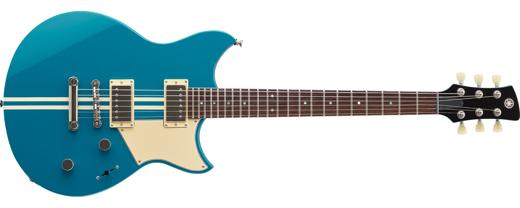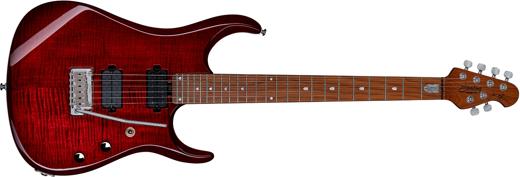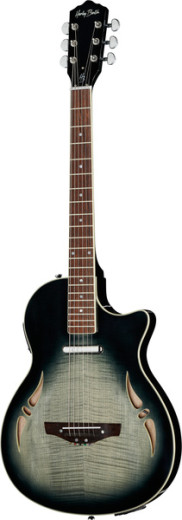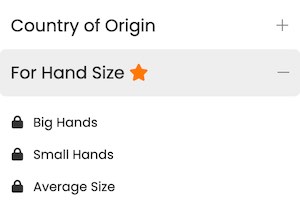Harley Benton Nashville-Steel Overview and Best Prices
- 2 Prices - New from €299 >
- From Harley Benton's 2022 Custom Line series
- Made in China
- 6 strings
- 25.5"'' scale
- 15.748" Fretboard Radius
- Flame Maple top
- Solid Mahogany top
- Mahogany back
- Mahogany sides
- Mahogany neck
- Jatoba fretboard
- Bridge pickup: Piezo system (bridge) (Preamp/Active)
- 0 volume and 0 tone knobs
- Walnut bridge
- C Shape Set neck
- 21 Medium frets
- Dlx Machine Heads tuners
- See all specs and compare >
Our Scores and Tone Evaluation
- Heavy Metal
- Hard Rock
- Jazz
- Blues
- Funk
- Country
Harley Benton Nashville-Steel
- Expensive Wood
- Cheap Fret Wire (NS)
- No Locking Tuners
- Made in China
- No High-Quality Nut
- No Top Brand Pickups
- No Neck-Through Build
- No Push Knob or Extra Switch Option
- No Luminescent Inlay
- No Tremolo
- No Compound Radius Fretboard
- No 21:1 Tuner Ratio
- No Strap Lock
Price Overview
Its average competitor's price is $400, which means that the Harley Benton Nashville-Steel is around 33% cheaper than the competition. This takes into account all instruments of the same category in our database with 6 strings and Fixed bridge that are made in China.
These are affiliate links. We may earn a fee if you purchase after clicking. These prices are prone to error. Make sure you're buying the right product after clicking on a link from our site. We are not liable if you buy the wrong product after following these links. As an Amazon Associate site we earn from qualifying purchases.
User Feedback
Not all instruments are created equally. That's why it's important to have different opinions. Here's what our users who have played this instrument say. If you've played it before, help others by voting below!
Weight
VoteTuning stability
VoteNeck speed (thickness)
VoteNeck access to high frets
VoteNeck profile shape
VoteFret edges
VotePickups noise
VotePickups power
VoteUser Reviews
Videos










Explore All From Harley Benton >
Playability
The Harley Benton Nashville-Steel meets 4 out of our 8 criteria items for beginner friendliness, which means that it's not bad for beginners, but it could be better. This takes into account the type of frets, scale length, nut width, bridge type, fretboard radius, and neck profile to determine the easiest combination for new players to get used to.
New Player Friendliness
Harley Benton Nashville-Steel- Comfortable shape
- Easy-to-use bridge
- Tall frets
- Comfortable neck
- Comfortable fretboard
- Narrow nut
- Short scale
- Locking tuners
Hand Size Comfortability
After taking into account the neck profile, scale size, fretboard radius, and nut width, we can conclude that the Harley Benton Nashville-Steel's construction favors people with relatively small hands.
Nevertheless, this comes down in the end to personal preference. Make sure you test this guitar—or another one with similar characteristics—before buying.
Scale Length
Scale length is the distance the strings will span between the bridge and the nut. It can tell you a lot about the overall playability and tone of the instrument. A longer scale length means longer distance between frets, brighter tone and more string tension—which means lower action, but more difficult bending of the strings.
Here's the Harley Benton Nashville-Steel's 25.5" scale length compared to other common sizes:
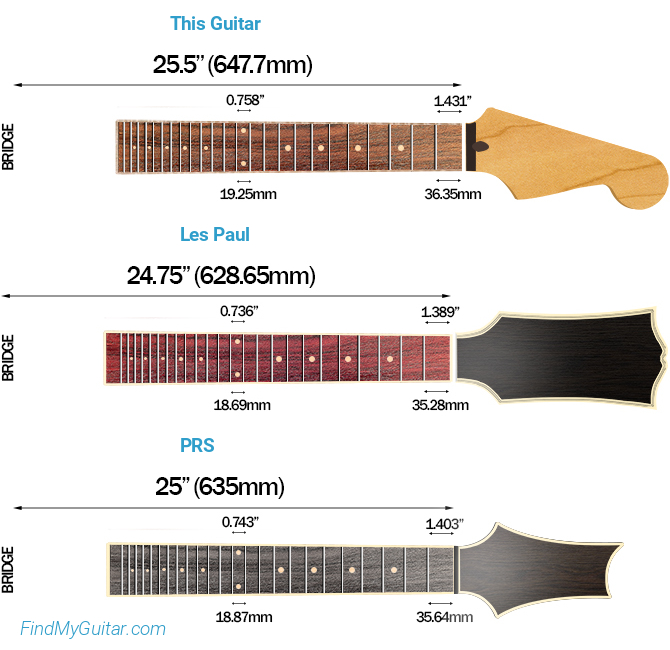
This is the same scale length used in Stratocaster guitars, and it's one of the main reasons they have such a bright sound. It's considered a long scale when compared to most non-baritone guitars.
Since the distance between bridge and nut is relatively long, you'll need to give the strings more tension to get them in tune. This higher tension will allow for a couple of things. First, you can get a lower action (get the strings closer to the fretboard) because the strings won't 'wiggle' too much when pluck and won't cause fret buzz. This can allow you to use lower tunings without increasing your string gauge, and it will make it easier to press down the strings fast.
However, the frets will also have a wider separation between each other, which can make it harder to play, especially if you got small hands. The higher tension will also make the strings feel stiffer, so bending will require more strength.
Neck Profile
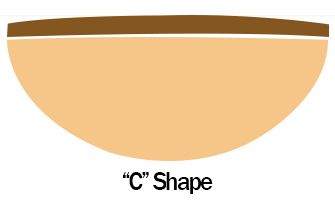
The neck profile tells you the thickness (neck depth) and shape in cross section. Every difference will completely change the feeling and comfortability of the neck. This is a highly subjective thing, but most players indeed prefer certain types of necks (like Cs and Ds) because they feel nice in most hands.
It has a C type neck. C-shaped necks like this have been the most popular for the last years. The reason is that they feel good in most hands. It's generally a thin neck that doesn't get in your way when playing fast, but that also has enough mass to give your hands a comfortable grip for chords if they aren't too big.
Thin necks like this make it easier to move your hand across the neck and it helps when playing fast solos, especially if you like to leave your thumb free while playing high on the fretboard. However, thinner necks are also weaker and will need adjustment more often than a thicker neck.
Fretboard Radius
When it comes to fingerboard radius, personal preference will dictate which one is better for you. However, most people seem to agree that a more curved (lower) radius will make it easier to play chords while a less curved (higher) radius is better for soloing and bending.
The Harley Benton Nashville-Steel has a 15.748" fingerboard radius.
Here's an image comparing this fretboard radius to other popular choices:

Compound radius fingerboards give the best of both worlds. Unfortunately, the Harley Benton Nashville-Steel has the same radius across the board.
Playability compared to main competitors
Nut Width
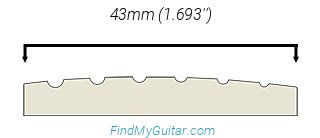
The Harley Benton Nashville-Steel has a nut width of 43mm (1.693''). This is within the most common range of nut widths for a 6-string guitar. It offers a good balance of string separation at the nut. It's the size that most guitarists prefer as it gives them just enough space to play open chords without muting the strings, but without spreading the strings too wide and making bar chords difficult to perform.
Frets
The Harley Benton Nashville-Steel has 21 frets. Even though 24 frets has become really popular, there's still a good reason to get fewer frets; the pickup at the neck position will be further away from the bridge. This makes the neck pickup achieve a warmer tone. You might want this if you're playing Jazz or similar genres.
However, if you don't care about the warmer neck pickup, more frets will always be better. It's always nice to have the option to play higher notes if you want to.
It comes with nickel silver frets, so they won't last as long as stainless steel frets. If you use your instrument a lot, you might need to replace the frets after a few years. But this is unlikely as most people change instruments before this happens.
Fret Size

Finally, let's talk about fret size. Some people prefer tall frets because it's easier to press the strings and perform bends since there's less friction against the fretboard. On the other hand, some people like shorter frets because they like to touch the fretboard when playing, or because they got heavy hands and tend to press too much on the string and alter the of the note pitch accidently.
The Harley Benton Nashville-Steel's frets are Medium size. With medium frets, you can feel the fretboard more than with jumbo frets, but it's still easier to press the strings cleanly than with small frets; notes might change their pitch just slightly if you press hard on the fret. Also, if you need to do some fret leveling after years of playing, you'll have some room to sand them down without having to replace them.
Playability Score
Tone
Wood will have little influence in the final tone of an electric guitar or bass. Instead, the hardware, especially the pickups, will be the most important thing to look at. Bur first, let's see the quality of the wood.
Wood


Mahogany Body and Neck: This is the type of wood found in many top-of-the-line guitars, so that's a positive point for the build quality. This red-looking wood Mahogany is found in Africa and Central America and has great sustain and a warm tone due to its high density. The downside about this type of wood is that it's relatively heavy.
Jatoba Fretboard: It's an exceptionally hard and dense wood that emphasizes the mid-lows, giving a fuller, more round sound than, for example, Mahogany. However, it also has a lot of clarity in the top end.
Pickups
Unfortunately, it doesn't come with pickups from one of the top brands. This doesn't mean you will get bad pickups, but you might want to consider a pickup upgrade after some time.
These are passive pickups, so you can expect a rounder sound and a moderade level of output.
The Harley Benton Nashville-Steel's configuration is S. A single single-coil pickup is not a configuration commonly found in modern electric guitars because it lacks versatility. But if you only want a guitar that sounds very thin and twangy, this might be good enough.
Versatility
Unfortunately, it doesn't come with more options for coil split or coil tapping. This makes it less versatile than some competitors.
Diagram
Unfortunately, we didn't find information about the switching diagram for this guitar.
What music genre is it good for?
As a 6 strings, Semi-Hollow guitar with S configuration and Passive pickups, we'd recommend it for genres like Country or similar. However, you can use almost any guitar for any genre. This is just the typical type of music for this particular one.
Sound Score
Build Quality
Country of Origin
Knowing where the instrument is produced is a good way to know how well it's built. Some manufacturing countries are known for having higher quality standards. For example, most expensive instruments are made in the US or Japan, but there are some exceptionally great countries—like South Korea—that are building a good reputation.
The Harley Benton Nashville-Steel is made in China. So you can expect lower build quality when compared to others made in Korea, Japan or the United States. Guitars made in this country are meant for mass production, which translates into less attention to detail and quality control. This doesn't mean the product is made poorly at all. Chinese products have a bad reputation since long ago, but they've definitely improved a lot the last few years.
Still, remember that we're taking about Harley Benton here, which is a brand with good renown. They know how to use cheap labor in this country without sacrificing too much quality. So you shouldn't end up receiving a useless or ugly instrument.
Bridge
Walnut: The advantage of fixed bridges is that they don't require any kind of set-up. This makes it extremely easy when changing strings because you don't need to adjust anything besides tuning the guitar. Also, the fact that the bridge is directly attached to the body will help to increase sustain. The disadvantage is the lack of versatility since you can't create the same vibrato effects as with tremolo bridges.
Nut Material
Another important thing to analyze is the nut material, as it's one of the most important aspects that can affect the sound and playability of your guitar. A well-cut nut will make sure it stays in tune and will make it more comfortable to play.
In this case, the Harley Benton Nashville-Steel has a Plastic nut. This is a low-quality nut that you might want to consider upgrading soon. Bone and TUSQ nuts are the best for guitars with a fixed or simple tremolo bridge.
Neck Joint
The neck joint is the part where the neck of the guitar meets the body. There are three main techniques to attach both parts together: Set-In, Bolt-On and Neck-Through. The latter two provide different advantages, although neck-throughs are the most expensive.
This guitar has a Set neck joint. This type of neck joint consists of using different pieces of wood for the neck and the body of the guitar. Both pieces are then glued together. This is more expensive to make than a bolt-on neck, but it's cheaper than a neck-through guitar. Some people believe that this gives more sustain than a bolt-on neck due to both pieces having a 'better connection' than with bolts. Still, it's something difficult to prove.
However, this type of neck joint does have the disadvantage of not allowing you to easily swap the neck for another. This makes this type of neck joint less mod-friendly.
